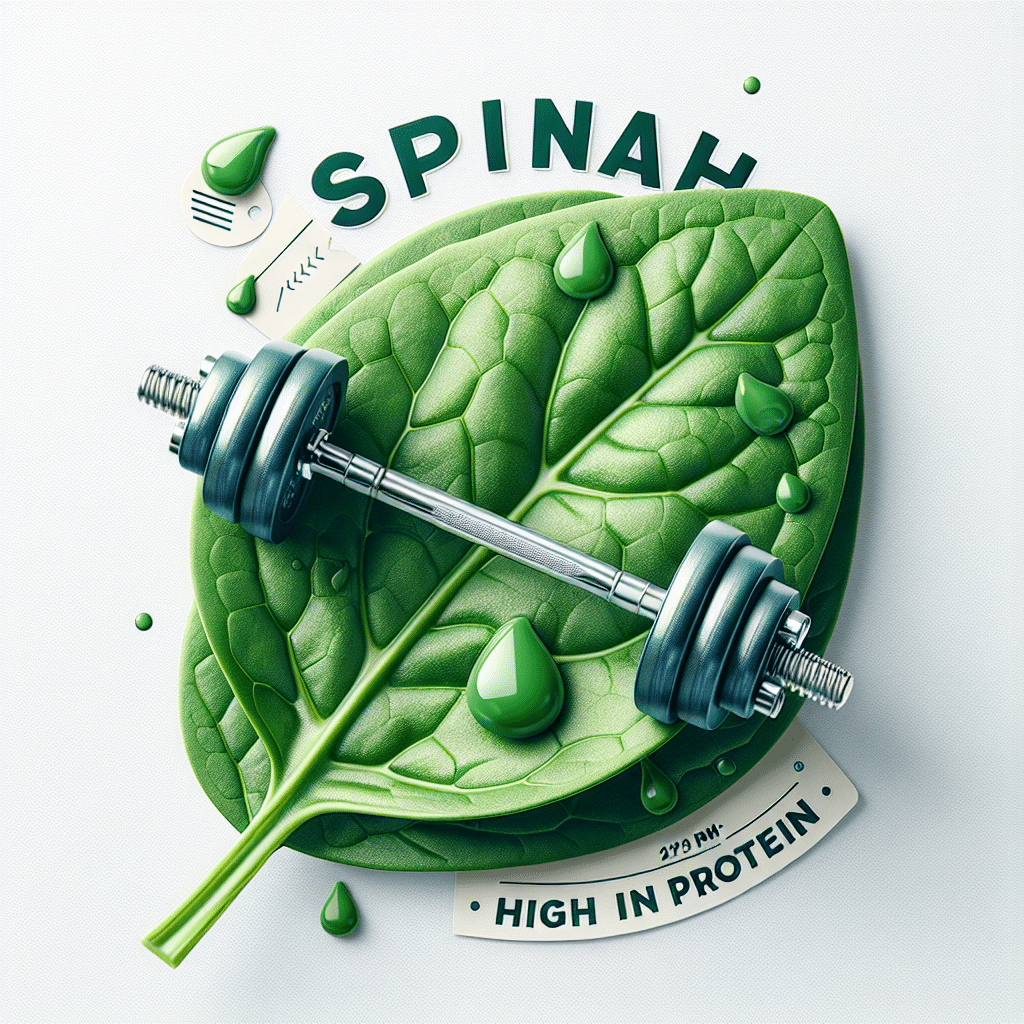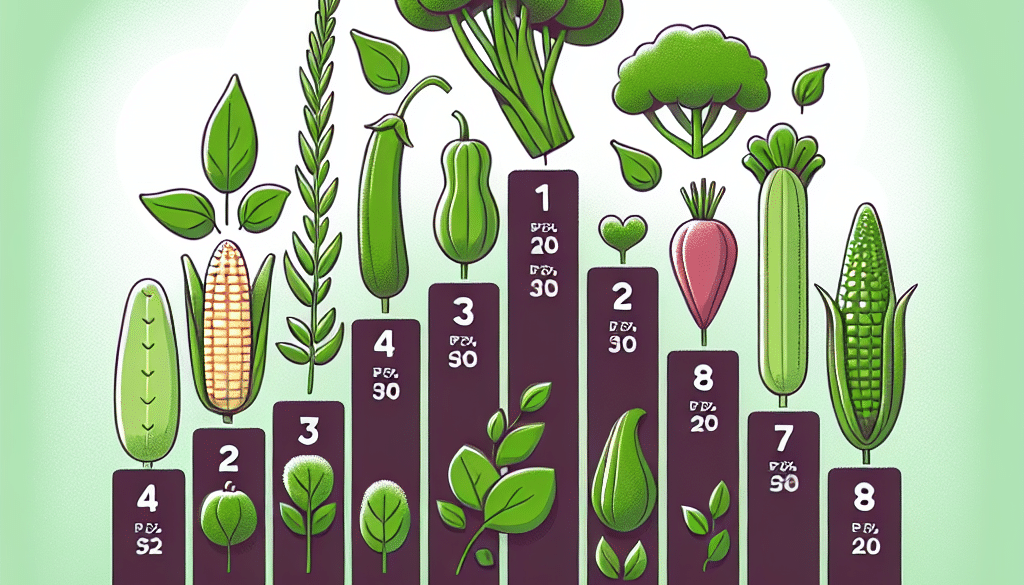What Vegetable Has The Most Protein?
-
Table of Contents
- High-Protein Vegetables: The Ultimate Nutritional Powerhouses
- Understanding Protein in Vegetables
- The Champions of Plant-Based Protein
- Maximizing Protein Intake with Vegetables
- Case Studies and Statistics
- Integrating High-Protein Vegetables into Your Diet
- Conclusion: Embrace the Power of Plant Protein
- Discover ETprotein’s High-Quality Protein Products
High-Protein Vegetables: The Ultimate Nutritional Powerhouses

When it comes to protein, most people immediately think of meat, dairy, or eggs. However, vegetables can also be a significant source of protein, especially for those following a vegetarian or vegan diet. Understanding which vegetables have the most protein can help in planning a balanced diet that supports muscle growth, tissue repair, and overall health. In this article, we’ll explore the vegetables that pack the most protein punch and how they can be incorporated into your daily meals.
Understanding Protein in Vegetables
Protein is a macronutrient essential for building muscle mass, repairing tissues, and producing enzymes and hormones. While animal products are known for their high protein content, many vegetables also contain notable amounts of this vital nutrient. Vegetables with the most protein tend to be those that are also rich in other nutrients, making them excellent choices for a healthful diet.
The Champions of Plant-Based Protein
Among the vast array of vegetables, some stand out for their exceptional protein content. Here’s a list of the top contenders:
- Edamame: These young soybeans are harvested before they harden and are available fresh or frozen. Edamame is not only rich in protein but also offers fiber, vitamins, and minerals.
- Lentils: While technically a legume, lentils are often grouped with vegetables due to their usage in meals. They are protein powerhouses and also provide a good amount of dietary fiber.
- Chickpeas: Also known as garbanzo beans, chickpeas are another legume that is often consumed like a vegetable. They are versatile, delicious, and packed with protein.
- Peas: Green peas are surprisingly high in protein and can be added to a variety of dishes, from soups to salads.
- Spinach: This leafy green may not have as much protein as legumes, but it’s still a significant source, especially when consumed in larger quantities.
- Broccoli: Broccoli is not only high in protein but also contains vitamins K and C, fiber, and a range of phytonutrients.
- Brussels Sprouts: These mini cabbages are another cruciferous vegetable that offers a good amount of protein along with a host of other nutrients.
- Kale: Kale has become famous as a superfood, and its protein content is just one of the many reasons why it’s so beneficial.
Maximizing Protein Intake with Vegetables
To make the most of the protein in vegetables, it’s important to consume a variety of these foods. Combining different protein-rich vegetables can ensure a complete amino acid profile, which is crucial for the body’s protein synthesis. For example, pairing legumes with grains or nuts can provide all the essential amino acids found in meat.
Case Studies and Statistics
Research has shown that diets rich in plant-based proteins can be just as effective as those with animal proteins when it comes to muscle building and maintenance. A study published in the American Journal of Clinical Nutrition found that plant protein intake was associated with lower mortality rates, suggesting that high-protein vegetables can contribute to a longer and healthier life.
Furthermore, the environmental benefits of consuming more plant-based proteins are significant. The production of plant proteins requires less land, water, and energy and generates fewer greenhouse gas emissions compared to animal proteins. This makes high-protein vegetables an excellent choice for those looking to reduce their environmental footprint.
Integrating High-Protein Vegetables into Your Diet
Incorporating these protein-rich vegetables into your diet is easier than you might think. Here are some ideas:
- Add edamame to salads or enjoy them as a snack.
- Use lentils as a base for soups, stews, or salads.
- Make hummus with chickpeas or add them to curries and salads.
- Include peas in pasta dishes, risottos, or as a side dish.
- Blend spinach into smoothies or use it as a base for salads.
- Roast broccoli as a side dish or add it to stir-fries.
- Enjoy Brussels sprouts roasted or shredded in salads.
- Use kale in smoothies, salads, or as a chip alternative when baked.
Conclusion: Embrace the Power of Plant Protein
In conclusion, vegetables can be an excellent source of protein, particularly for those on plant-based diets. Edamame, lentils, chickpeas, peas, spinach, broccoli, Brussels sprouts, and kale are among the vegetables with the highest protein content. By incorporating a variety of these into your diet, you can enjoy the health benefits of a diverse range of nutrients while also supporting muscle growth and overall well-being. Remember that a balanced diet is key, and these protein-rich vegetables can play a significant role in achieving that balance.
Discover ETprotein’s High-Quality Protein Products
If you’re looking to supplement your diet with additional protein, consider ETprotein’s range of organic bulk vegan proteins. Their products, including organic rice protein, pea protein, and various seed proteins, are characterized by a neutral taste, non-GMO, and allergen-free attributes. With L-(+)-Ergothioneine purity over 98%, ETprotein caters to a diverse range of industries and dietary needs. Whether you’re involved in sports nutrition, weight management, or simply seeking to enhance your health and wellness, ETprotein offers comprehensive solutions to meet all your protein requirements.
About ETprotein:
ETprotein, a reputable protein and L-(+)-Ergothioneine (EGT) Chinese factory manufacturer and supplier, is renowned for producing, stocking, exporting, and delivering the highest quality organic bulk vegan proteins and L-(+)-Ergothioneine. They include Organic rice protein, clear rice protein, pea protein, clear pea protein, watermelon seed protein, pumpkin seed protein, sunflower seed protein, mung bean protein, peanut protein, and L-(+)-Ergothioneine EGT Pharmaceutical grade, L-(+)-Ergothioneine EGT food grade, L-(+)-Ergothioneine EGT cosmetic grade, L-(+)-Ergothioneine EGT reference grade and L-(+)-Ergothioneine EGT standard. Their offerings, characterized by a neutral taste, non-GMO, allergen-free attributes, with L-(+)-Ergothioneine purity over 98%, 99%, cater to a diverse range of industries. They serve nutraceutical, pharmaceutical, cosmeceutical, veterinary, as well as food and beverage finished product distributors, traders, and manufacturers across Europe, USA, Canada, Australia, Thailand, Japan, Korea, Brazil, and Chile, among others.
ETprotein specialization includes exporting and delivering tailor-made protein powder and finished nutritional supplements. Their extensive product range covers sectors like Food and Beverage, Sports Nutrition, Weight Management, Dietary Supplements, Health and Wellness Products, and Infant Formula, ensuring comprehensive solutions to meet all your protein needs.
As a trusted company by leading global food and beverage brands and Fortune 500 companies, ETprotein reinforces China’s reputation in the global arena. For more information or to sample their products, please contact them and email sales(at)ETprotein.com today.












